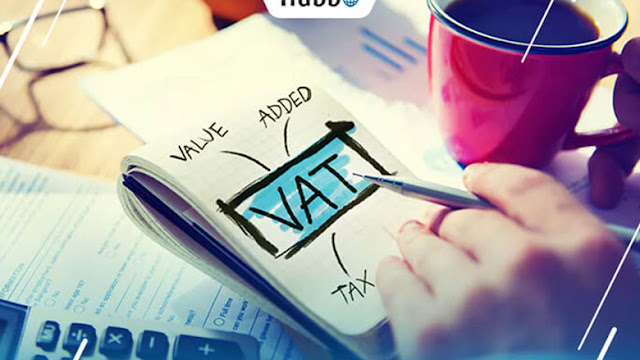Value Added Tax (VAT) in UAE | VAT Payment Deadline | How to Register | Zero-rated VAT | Are Tourists Exempted?
Value Added Tax (VAT) in UAE
Value Added Tax or (VAT) is a tax on the consumption or use of goods and services levied at each point of sale. VAT is a form of indirect tax and is used in more than 180 countries around the world. The end-consumer ultimately bears the cost. Businesses collect and account for the tax on behalf of the government.
Value Added Tax (VAT) was introduced in the UAE on 1 January 2018 with a rate of VAT 5%. The VAT, as a general consumption tax, will apply to the majority of transactions in goods and services.
UAE imposes VAT on tax registered businesses on a taxable supply of goods or services at each step of the supply chain.
UAE imposes VAT on tax registered businesses on a taxable supply of goods or services at each step of the supply chain. VAT will provide the UAE with a new source of income which will be continued to be utilized to provide high-quality public services.
Extended VAT return | VAT payment deadline
The federal tax authority of the United Arab Emirates (UAE) has extended by one month to the end of 28 May 2020, the deadline for filing the value-added tax (VAT) return and for paying VAT owed for the tax period ended 31 March 2020 (whether monthly or quarterly).
The original filing and payment date was 28 April 2020.
Extended VAT return | VAT payment deadline
The federal tax authority of the United Arab Emirates (UAE) has extended by one month to the end of 28 May 2020, the deadline for filing the value-added tax (VAT) return and for paying VAT owed for the tax period ended 31 March 2020 (whether monthly or quarterly).
The original filing and payment date was 28 April 2020.
Value Added Tax (VAT) was introduced in the UAE on 1 January 2018.
The rate of VAT is 5 percent.
VAT will provide the UAE with a new source of income which will be continued to be utilized to provide high-quality public services.
It will also help government move towards its vision of reducing dependence on oil and other hydrocarbons as a source of revenue.
Why is VAT implemented in UAE?
One of the main reasons for implementing VAT in the UAE is to generate more revenue for the government.
Using this revenue, the Government plans to offer various types of public services, including medical facilities, good roads, transportation facilities, public schools, parks, waste control, and more.
Who has to pay VAT in UAE?Companies that have an annual turnover above Dhs 375,000 have to register for VAT. Companies that have a turnover under Dh375,000 but above Dh187,500 can voluntarily register for VAT.
VAT applies equally to tax-registered businesses managed on the UAE mainland and in the free zones.
Who should register for VAT in UAE?
Criteria for registering for VAT
Companies that have an annual turnover above Dhs 375,000 have to register for VAT. Companies that have a turnover under Dh375,000 but above Dh187,500 can voluntarily register for VAT.
VAT applies equally to tax-registered businesses managed on the UAE mainland and in the free zones.
- A business must register for VAT if its taxable supplies and imports exceed AED 375,000 per annum.
- It is optional for businesses whose supplies and imports exceed AED 187,500 per annum.
- A business house pays the government, the tax that it collects from its customers. At the same time, it receives a refund from the government on tax that it has paid to its suppliers.
- Foreign businesses may also recover the VAT they incur when visiting the UAE.
How to register for VAT?
Businesses can register for VAT through the eServices section on the FTA website. However, they need to create an account first. For more details about VAT registration, please read VAT registration User Guide (PDF).
For general inquiries about tax registration and/or application, you may contact Federal Tax Authority through the enquiry form or send an email to info@tax.gov.ae. You can also call on 600 599 994 or 04-7775777.
How much is VAT in UAE?
UAE imposes VAT on tax-registered businesses at a rate of 5 percent on a taxable supply of goods or services at each step of the supply chain. Tourists in the UAE also pay VAT at the point of sale.
How is VAT Calculated in Dubai?
The input tax rate is 5%, so the input tax you pay is 5% of 100,000 AED = 5,000 AED. ... Supposing 5% is the output tax, the output tax you pay is 10,000 AED. So, final (net) VAT payable by you will be 10,000 AED - 5,000 AED = 5,000 AED. In the VAT settlement, you deduct input VAT from output VAT.
How is VAT collected?VAT-registered businesses collect the amount on behalf of the government; consumers bear the VAT in the form of a 5 percent increase in the cost of taxable goods and services they purchase in the UAE.
UAE imposes VAT on tax-registered businesses at a rate of 5 percent on a taxable supply of goods or services at each step of the supply chain.
On which businesses does VAT apply?
VAT applies equally to tax-registered businesses managed on the UAE mainland and in the free zones.
However, if the UAE Cabinet defines a certain free zone as a ‘designated zone’, it must be treated as outside the UAE for tax purposes. The transfer of goods between designated zones is tax-free.
Filing a return for VAT
Liability of VAT
The liability of VAT is the difference between the output tax payable (VAT charged on supplies of goods and services) for a given tax period and the input tax (VAT incurred on purchases) recoverable for the same tax period.
Where the output tax exceeds the input tax amount, the difference must be paid to FTA. Where the input tax exceeds the output tax, a taxable person will have the excess input tax recovered; he will be entitled to set this off against subsequent payment due to FTA.
How to file a VAT return?
You must file for tax return electronically through the FTA portal: eservices.tax.gov.ae. Before filing the VAT return form on the portal, make sure you have met all tax returns requirements.
When are businesses required to file VAT returns?
Taxable businesses must file VAT returns with FTA on a regular basis and usually within 28 days of the end of the ‘tax period’ as defined for each type of business. A ‘tax period’ is a specific period of time for which the payable tax shall be calculated and paid. The standard tax period is:
- quarterly for businesses with an annual turnover below AED 150 million
- monthly for businesses with an annual turnover of AED 150 million or more.
Can I claim VAT on old invoices in UAE?
Can businesses claim VAT incurred on expenses? ... Businesses should have proper documents (such as a valid VAT invoice) showing that the VAT is paid.
VAT input tax refund can be claimed only on the amount paid (or intended to be paid) within 6 months after the supply date.
What is zero-rated VAT in UAE?
Zero-rated VAT in UAE means you must charge VAT at 0% to your customers.
Exempt VAT means you must NOT charge VAT. The implementation of VAT is set to be on 1 January 2018, being imposed on certain goods and services.
However, the law laid out a couple of exemptions and zero-rated goods and services.
Is VAT applicable for services outside UAE?
UAE suppliers are only entitled to apply the zero rate of VAT on services supplied, if the establishment of its recipient, that is most closely connected to the supply, is outside UAE. ... Whether the services are related to the business being carried on by the recipient through an establishment in a particular country.
Who is exempted from VAT in UAE?
- Financial services, including life insurance and reinsurance of life insurance. ...
- Residential buildings, other than the residential buildings which are specifically zero-rated.
- Bare land.
- Local passenger transport.
How much is the VAT refund in Dubai?
In the refund, tourists will receive 85 percent of the total VAT amount paid, minus an administration fee of AED 4.
How do I claim the VAT back in UAE?Conditions for tourists to claim their VAT refunds:
- He must have the explicit intention to leave the UAE in 90 days from the date of supply, along with the purchased supplies.
- He must export the purchased goods out of the UAE within three months from the date of supply.
Form Navigation menu, select the 'VAT'->VAT 201- VAT Return-> click on 'VAT 201-New VAT Return' to initiate the VAT return filing process
How do I claim the VAT back at Dubai airport?
If you are short on time, head to one of the Planet Payment self-service kiosks at Dubai International (DXB), or Al Maktoum International Airport at Dubai World Central (DWC).
Submit the tax invoices, along with your passport and credit card, and the kiosk will process refunds automatically.When you purchase a good at a registered retailer shop, they record your information in an electronic system and give you a VAT refund tag.
For more assistance, send your queries to info@sesam-accounts.com
or WhatsApp your questions to Ms. Kiran Makhija on + 971 52 8731596
Read more on VAT registration:
Read more about VAT on the websites of: VAT guidelines:- VAT treatment for selected sectors (PDF, 218 KB)
- VAT for businesses (PDF, 2.6 MB)
- VAT for education (PDF, 1.81 MB)
- VAT for retailers (PDF, 6.09 MB)
- Guidance on zero-rated and exempt supplies (PDF, 1.44 MB)
- 10 things you need to know about VAT (PDF, 1.64 MB)
- VAT treatment of properties (PDF, 2.63 MB)
- VAT treatment for imported goods (PDF, 336 KB)
- Know your rights – Tax invoice (PDF, 4 MB)
- Know your rights – Education (PDF, 140 KB)
- Know your rights – Healthcare services (PDF, 139 KB)
Check more guides, references and public clarifications from the Federal Tax Authority.
VAT laws:
View UAE tax laws and procedures (VAT and excise) on the website of the Federal Tax Authority.
Useful links:
- Federal law by decree No. 13 of 2016 concerning the establishment of the Federal Tax Authority (PDF, 1.5 MB)
- VAT FAQs – Federal Tax Authority




